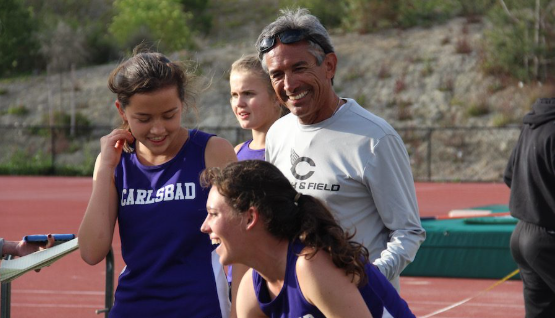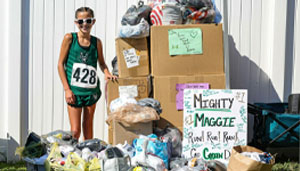Effective Communication with Athletes and Coaches
By Julie Cochran, NFHS Director of Sports and Middle Schools on February 04, 2025 Track & Field/Cross Country article PrintIn high school track and field, effective communication between officials, athletes, and coaches is essential for creating a positive atmosphere, ensuring fair competition, preventing misunderstandings, and maintaining the educational purpose of high school track and field. Establishing respectful, professional relationships lays the foundation for a smooth and enjoyable experience for all participants. Here are some tips to foster positive interactions and build a collaborative environment:
1. Set the Tone with Clear Expectations: Before the meet begins, officials should hold a brief meeting with coaches to outline the expectations and procedures for the meet. Field Event officials should hold a brief meeting with athletes before the start of each event. This proactive approach eliminates confusion and sets a professional tone for the competition.
2. Use Positive, Respectful Language: Always address athletes and coaches in a respectful manner. Avoid abrupt or overly critical remarks, even during tense situations. A calm and positive demeanor can help de-escalate potential conflicts and demonstrate professionalism.
3. Listen Actively: When athletes or coaches approach you with a question or concern, listen carefully before responding. Acknowledging their perspective shows respect and can prevent miscommunication. Use clarifying questions if needed to ensure mutual understanding.
4. Communicate Decisions Clearly: When making rulings, explain your decision in a concise, factual manner. Use neutral language and avoid sounding defensive. Providing a clear explanation helps athletes and coaches understand your reasoning, even if they disagree.
5. Handle Conflicts with Diplomacy: If conflicts arise, stay calm and avoid personalizing the issue. Reiterate the rules or reasoning behind your decision without becoming confrontational. If tensions remain high, involve meet management or school athletic director.
6. Celebrate Sportsmanship: Recognize and acknowledge acts of good sportsmanship during the meet. This reinforces a positive atmosphere and highlights the value of respectful interactions.
7. Follow Up After the Meet: After the competition, take time to reflect on what went well and identify any areas for improvement in communication. If a specific incident occurs that need reporting to the state association submit the proper documents
By prioritizing effective communication and mutual respect, track and field officials can contribute to a positive and professional environment for high school athletes and coaches. Together, we can ensure that the focus remains on fair competition, personal growth, and the love of the sport.
If you have a topic, you would like me to address in my NOC newsletter article, please reach out to me: [email protected].
Julie Cochran, NFHS Director of Sports and Middle Schools
Most Recent Articles
- 2025 Performing Arts Education and Creative Industry Meeting Materials
- Boys Lacrosse Season Preview - 2025
- Girls Lacrosse Season Preview - 2025
- nfhs news Risk Minimization Focus of 2025-26 High School Spirit Rules Changes
- nfhs news Supporting High Schools, State Associations to Determine Eligibility, Transfer Rules






